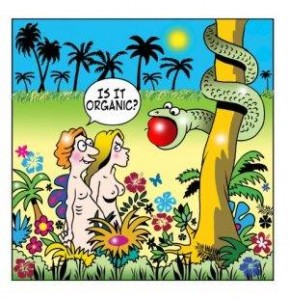A reader wrote “I need your help. I need a metaphor. Tell me of a plant, preferably a crop plant or something like that which performs for a while, becomes less prolific, and has to be uprooted and replanted to improve the harvest.”
That really became an article to think about. I suppose many possible metaphors of plants in a healthy garden reflect the proper cultivation of community or politics. As with incarcerated individuals in prison, plants deprived of sunlight will slowly wither and die. This applies to the garden when faster and more dominant plants hog the sunshine. Giving proper nutrition and sustenance in a neglected garden will always create an unexpected outcome in what can and might be harvested in the future. Poor soils with limited investments will rarely create a good garden.
Mentors and companion planting is always an interesting topic, such as planting self-nurturing plants together. In the community this might be pairing retires to young children in reading programs. Both would benefit. As always planting bee attracting plants and others to attract beneficial insects is helpful. The apple tree may not know what those small clovers do for it, but by attracting pollinating insects and providing nitrogen to the soil the tree benefits, even though it may not be fully aware why it is suddenly feeling younger. 
On plants becoming less prolific I will get into strawberries shortly. This being winter and I am harvesting KALE. I must add that sometimes frost or light snow improves the flavor of the kale. This is a matter of growing and sowing the right crop at the right time. Tomatoes and summer season vegetables simply croak at the touch of frost. Some plants like strawberries may look dormant and snuggled down for the winter, but their roots are still active. So mulch them well AFTER the first frosts, but not necessarily before. I am a firm believer in ‘hard love.’ Overprotecting plants before they need it will not encourage the roots to sink down more deeply before winter arrives.
Returning to the bright luscious strawberry. Re-lifting and replanting the healthiest plants each fall is important. Moving the beds to a new site, rejuvenated with compost, calcium and like is important. Leaving them to grow in the same tired out old bed will usually lead to ever diminishing returns.
Correct planting is essential, most especially being drainage. If you bury the crown too deeply, the plant could easily rot. One forgotten aspect of ‘drainage’ is oxygen. Waterlogged soils do not allow air to the roots and they in their own manner suffocate. Many varieties of strawberries eagerly produce offspring. Thinning out the runners to three will help prolong the lifespan of the garden. These new plants once established should then replace the old tired mother plant after a year or two. Call it population control!
Ways to Prepare the Soil for Better Berries The secret to healthy plants, gardens and sustainable harvests lies in the care and preparation of the growing area. One may need to rotate crops, plant cover crops and maybe need to raise or lower ph. This means you need to treat your garden or community like the stock market. Due diligence! Do the homework and do not expect the eBay Internet ‘experts’ do it for you. Learn and garden locally, and if you see a great garden, knock on the door, complement the owner and I am sure they will share a lot of information. Perhaps even a few seeds.
It has been my experience that most gardens are reactive rather than proactive. By that I mean, that the average gardener brings out the insecticides and pesticides and fertilizers when the plants or community is in stress. You will likely do more harm than good with such reactions. Long term investments always pay off. Think long term and plant things that will attract pollinators to your garden, not pests.
Overcrowding any garden without proper fertilizers will always lead to failure. In the case of beets, if you don’t thin, you will get all tops and no roots. They must have room to expand underground. With chard, you will get many small, spindly leaves and no large ones with those delectable crunchy ribs. Chard that hasn’t been thinned out also has a tendency to bolt and become bitter. Much like some politicians I know.
It’s far better to have one-tenth of the crop flourishing than have the whole lot malnourished and spindly. Sadly that is the way this country is heading. Perhaps I should have ended with “Politics is much like compost. You prefer not knowing the contents or what went into it..” Throw in ‘Community’ as well.
Very graphic and beautiful site. A few quotes from that site:
“Life can be seen as a garden maze, sometimes the hedges are too tall to see over or, too thick to see through, with no way of knowing what lies ahead or around the corner. There is a beginning and an end but, there is also a whole lot of middle !”
“To allow the beautiful blooms space to breathe and grow. The beauty of life can be lost amongst the mundane ‘weeds’ of life. Stress and negativity can sometimes take over and the beauty of life can get lost.”
“Beauty is in the eye of the beholder, be it in life or in the garden. Some people like their gardens simple, as they do their lives, others like to take risks and try to grow the difficult, non-hardy plants..”
Other links as I think of them. Why you should grow your own strawberries.
‘We reap what we sow.’ We need to remove the weeds from our lives. … Been there!


